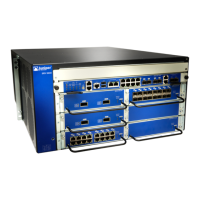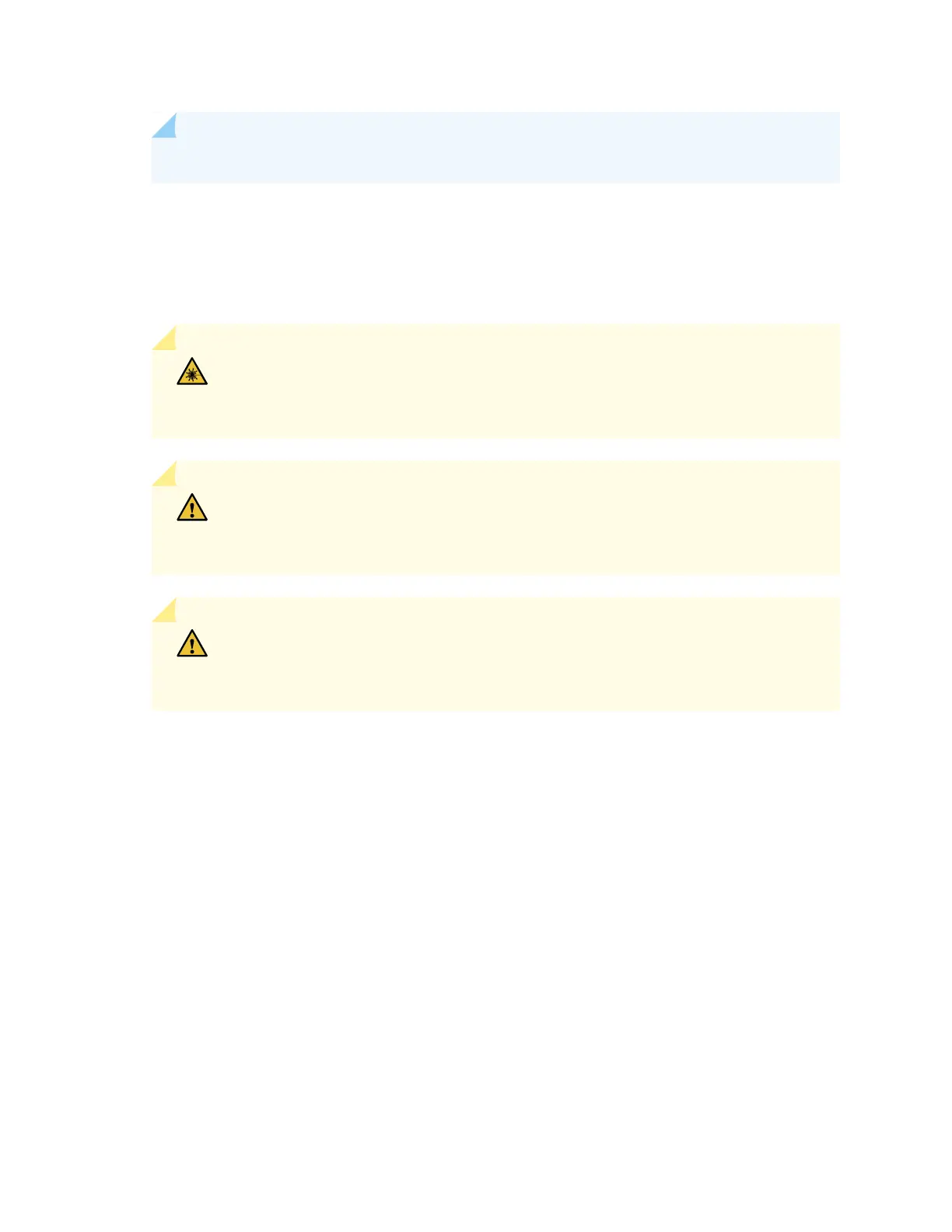NOTE: You may find it easiest to use a pen, screwdriver, or other tool to press the button.
5. For IOCs or NP-IOCs, disconnect any cables connected to the Ethernet ports, marking them so they
can be reconnected in the proper location. If the IOC or NP-IOC uses fiber-optic cable, immediately
cover each transceiver and the end of each cable with a rubber safety cap. Arrange the disconnected
cables in the cable management system to prevent the cables from developing stress points.
WARNING: Do not look directly into a fiber-optic transceiver or into the ends of
fiber-optic cables. Fiber-optic transceivers and fiber-optic cable connected to a
transceiver emit laser light that can damage your eyes.
CAUTION: Do not leave a fiber-optic transceiver uncovered except when inserting
or removing cable. The safety cap keeps the port clean and prevents accidental
exposure to laser light.
CAUTION: Avoid bending fiber-optic cable beyond its minimum bend radius. An arc
smaller than a few inches in diameter can damage the cable and cause problems that
are difficult to diagnose.
6. Loosen the captive screws at each end of the CFM faceplate.
7. Grasp the CFM by its handle and slide it halfway out of the chassis.
8. Place one hand underneath the CFM to support it and slide it completely out of the chassis.
217

